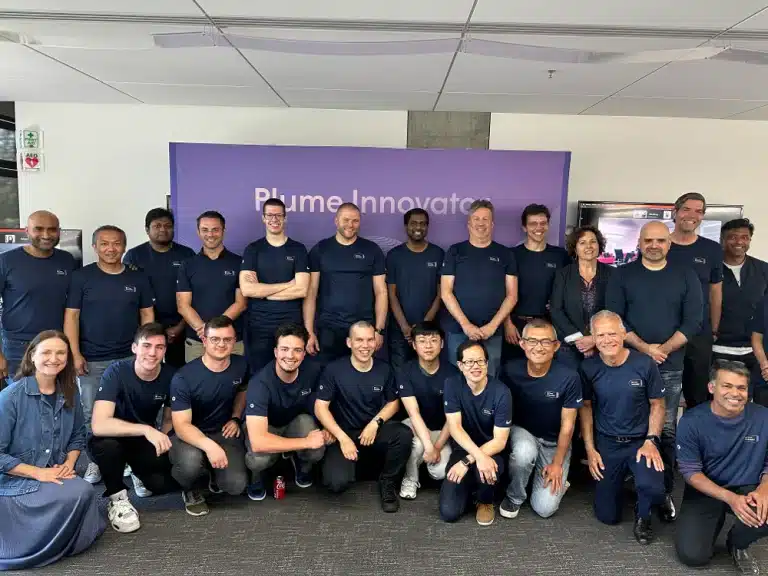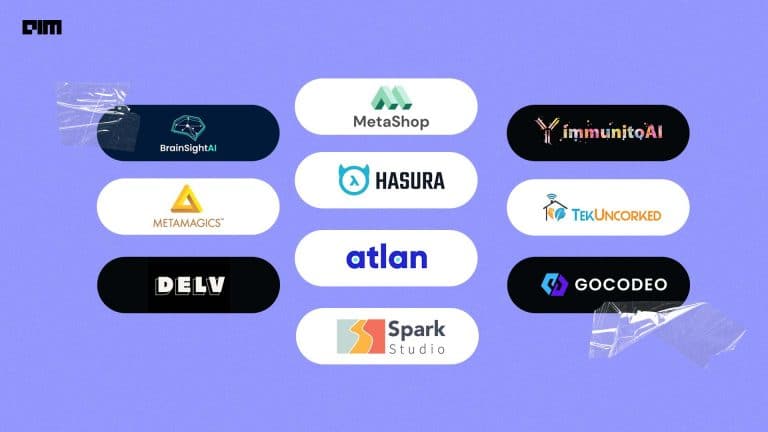USA-headquartered Amplify.ai was founded in 2018 by Mahi de Silva and Manoj Malhotra to equip brands with conversational AI technology. Since its inception, Amplify.ai has enabled brands to have more than 11 billion interactions with more than 600 million consumers worldwide. Its AI-driven engagement platform enables brands to have conversational, natural language engagement across the entire customer journey.
Recently, Analytics India Magazine got into a conversation with Kartik Walia, Head of India Operations at Amplify.ai, to understand how the startup is leveraging AI and ML technology in its day-to-day operations.
An alumnus of Delhi University, Kartik has over 16-years of experience in product management, CRM, consumer marketing, and analytics. Before joining Amplify.ai, he held key positions in media houses, including Network18, IndiaTV, and Jagran Prakashan Ltd. His previous stints also included working with startups Letsbuy.com (now Flipkart), D2Hshop (Jagran Prakashan’s e-commerce venture), and United Corporation. At Amplify.ai, he manages a 25-member team, nurturing the startup’s business within the Indian market.
Edited excerpts from the conversation:
AIM: What is the pain point Amplify.ai is trying to solve, and how? What are your flagship products?
Kartik Walia: We enable brands to engage prospects and customers in always-on, personalised, and persistent conversations across the customer journey. Our solution works seamlessly across mobile and desktop, on the web, and in social media, social messaging, and search experiences. In addition, our ML systems are equally adept at amplifying the output and impact of human teams in marketing, customer care, and government and civic engagement.
Conversational AI initiates realistic conversations with the end customer and considers the relevant historical data. It can access the full context of past experiences (including previous purchases, interactions, queries) that might affect customer satisfaction. Ultimately, it ensures that the most optimal path is adopted to bring about the desired outcome. It can also generate additional business-centric insights and better understand customer behaviour (via psychometric analysis).
Furthermore, these solutions also enable the customer to continue their conversation when and where they want. For instance, when a customer inquires about a product or finalises one, the same conversation continues on the website as well. This makes the process seamless and creates higher customer satisfaction.
AIM: Explain the tech stack at Amplify.ai.
Kartik Walia: Amplify.ai is a turn-key solution that can be easily integrated into the customer journey across marketing and customer care experiences. Conversations can be ‘programmed’ via a zero-code, drag-and-drop conversational builder or further extended via JSON events and triggers. Our solutions are sold as a SaaS-based monthly subscription based on the number of conversations enabled.
We use intents/entity structure to train our NLP data and scrape conversations from multiple platforms. These conversations are in the order of millions due to the number of user interactions with various publishers. An in-house library validates this data for spellings and punctuation amongst many lexical checks. This is then run through a Rasa Pipeline, which is configured to generate initial intents and sentiments.
Single-word, Bigram, and Trigram frequencies are built to see if any particular phrase/topic is trending, which can be tagged with any custom intents. These cleaned comments are then fed to multiple sentiment scoring algorithms. These algorithms are a healthy mix of rule-based learning and supervised learning.
TextBlob and Vader are examples of rule-based learning, and SVM and Logistic Regression are examples of Supervised ML algorithms, amongst others. Automated Hyperparameter Tuning is done on these algorithms using Bayesian Optimisation to extract the best model performance.
However, measures have been taken to avoid underfitting/overfitting on training data. The output of these algorithms is one to five sentiment class labels ranging from bad to good. Since the class distribution is not expected to be consistent, priority is given to the Macro f1 scores to evaluate the model’s performance, amongst other things.
These outputs are compared to initial sentiments, and the system retains the best fit. This helps us achieve a fine-grained sentiment analysis outcome.
We are now exploring the possibility of using word and string embeddings with deep learning techniques. The ideology behind this approach is to see if greater contextual accuracy can be extracted with this cutting edge technology.
AIM: What tech tools do you use?
Kartik Walia: We have developed a proprietary artificial intelligence and machine learning stack that includes engines for Natural Language Understanding, Natural Language Generation, Sentiment, Intent, and Entity analysis. Our ML systems are trained on billions of interactions. They have specialised in marketing and customer care interactions in e-commerce, financial services, consumer electronics, automotive, telecommunications, media, and government or political verticals.
AIM: Help us understand the benefits of using Amplify.ai using a few real-life cases.
Kartik Walia:
- Retail company Lifestyle uses Amplify.ai for content moderation. The solution empowers brands and their social media teams with access to social media tools, helping brands deploy solutions for real-time comment analysis and the choice of prioritised recommendations for team members to act upon, or automated actions are taken instantly. This includes liking positive comments, posting public replies to FAQs, tagging comments for customer support issues, privately replying when appropriate, and hiding problematic comments, such as those containing hate speech. After implementing the solution, Lifestyle’s social moderation is now 90 per cent automated on Facebook and approximately 50-70 per cent automated on Instagram.
- Government of India’s citizen engagement platform MyGov uses Amplify.ai to answer people’s questions and queries regarding COVID-19 helplines, volunteering and donations, in real-time. We developed an AI-driven, omnichannel virtual assistant that worked across all the relevant ‘conversational surfaces’ like web chat, on Google search and maps, and Facebook Messenger. 11,000 food and night shelter places were discoverable via Google Business Messages (GBM) across India in approximately 700 cities. The user messenger conversation had more than 60 million messages exchanged.
- During the US Presidential Elections 2020, Amplify.ai worked with five US democratic presidential campaigns, including Joe Biden and 10 US democratic senate campaigns, including Mark Kelly, John Hickenlooper, and Jon Ossoff. Kamala Harris was one of our first political clients in May 2019.
- Most recently, footwear brand Puma partnered with Amplify.ai for its consumer engagement campaign to launch PUMA NITRO running shoes in India. We helped generate more than 1.2 million conversations across the country in 15 days.
AIM: Who do you compete with? What is your USP?
Kartik Walia: At Amplify.ai, our unique turn-key solutions for customer engagement across marketing and customer care stand in stark contrast to competitive offerings that are an ingredient of a solution that has to be implemented by the enterprise. We aim to provide conversational superpowers to every enterprise in India and worldwide, offering an omnichannel engagement integrating conversational AI across the entire customer journey.
AIM: What are the tech trends in the conversational AI space?
Kartik Walia: The forefront of NLP remains machine learning, and as with image recognition, the breakthroughs are happening primarily on the dataset front. For Amplify.ai, our progress has been accelerating in the past two years thanks to the conversational dataset scale via an expanding number of ‘conversational surfaces’ driven by a tech giant land grab to control B2C messaging. That explosion in ways that brands can engage with their prospects and customers via AI-driven messaging has allowed us to scale as never before, getting to over 12 billion engagements with over 600 million consumers worldwide.
AIM: What does the future of conversational AI look like?
Kartik Walia: Conversational AI remains a hard challenge. The chicken-and-egg problem still vexes most vendors. At Amplify.ai, we have trained our NLP engine, allowing us to expand the number of consumer engagement use cases along the customer journey in which our conversational engagement passes the Turing test (in the narrow). This will allow human teams in marketing and CX to operate at a superhuman scale increasingly.
AIM: How does the road ahead look like for Amplify.ai?
Kartik Walia: We will continue to expand our solution across new verticals and create additional integration points with solutions and services deployed by enterprises worldwide. Additionally, we will continue to expand our solution to work across new communications and messaging channels as they become relevant.
The conversational AI market is fast-evolving. Markets and Markets predicts that the valuation of the conversational AI space is expected to grow from $4.8 billion in 2020 to a whopping $13.9 billion market by 2025, growing at a CAGR of 21.9 per cent. To know about the players working in the conversational AI space in India, check this story. And, to understand how MyGov used Amplify.ai’s solution to keep citizens informed during the COVID-19 pandemic, check this story.



















































































